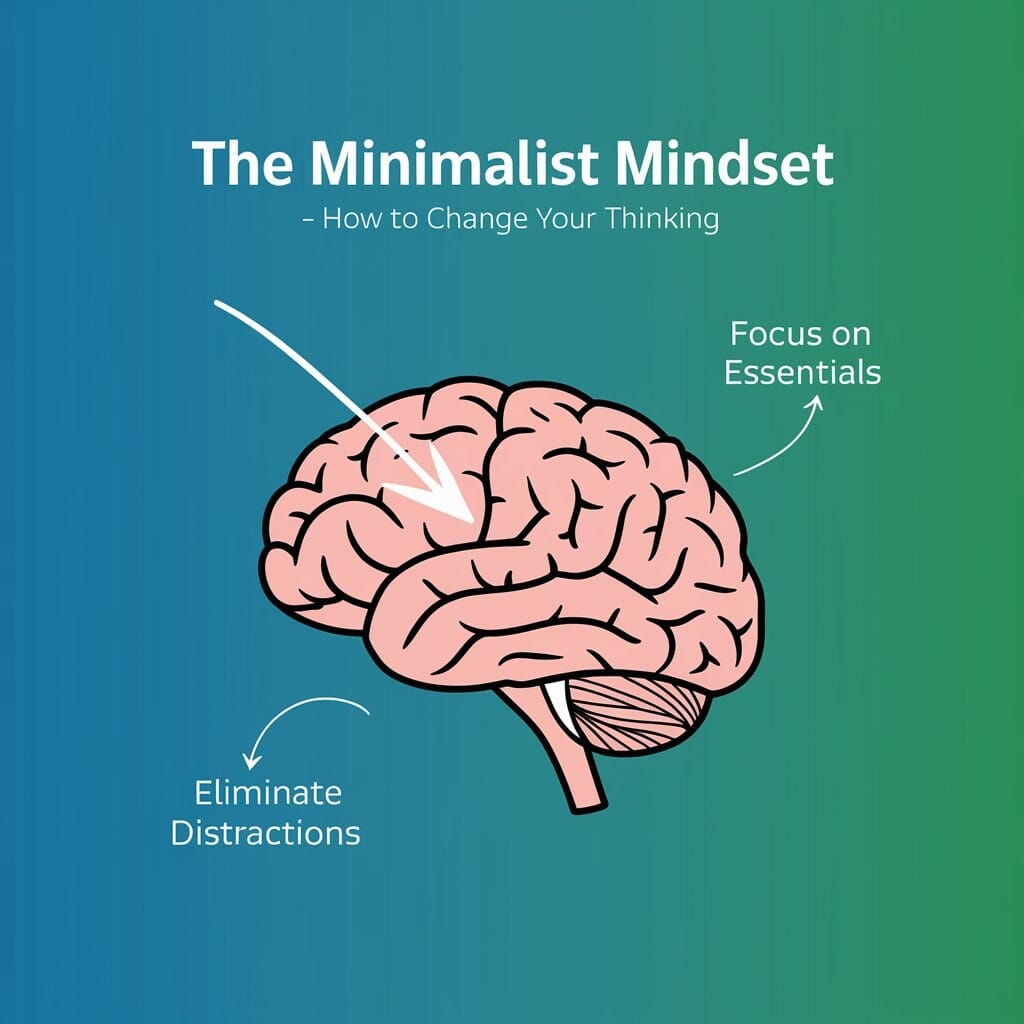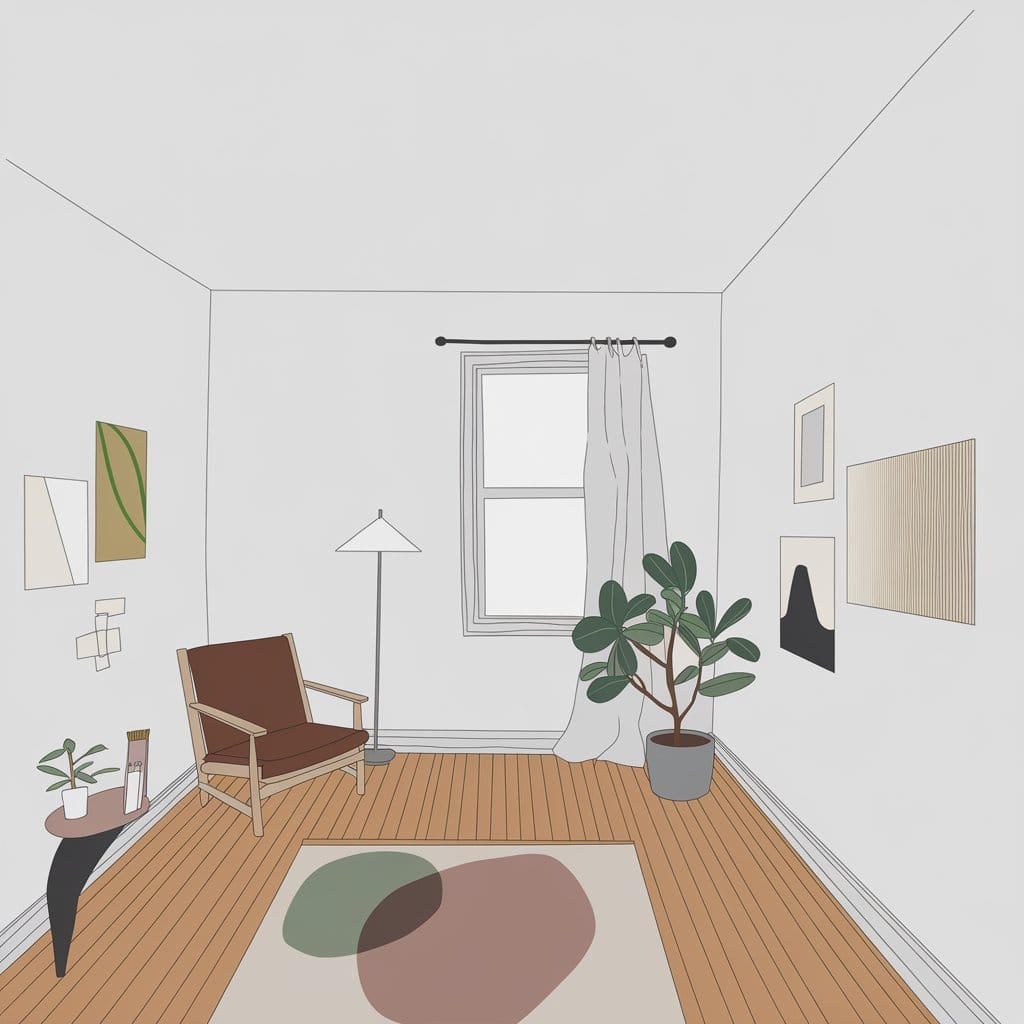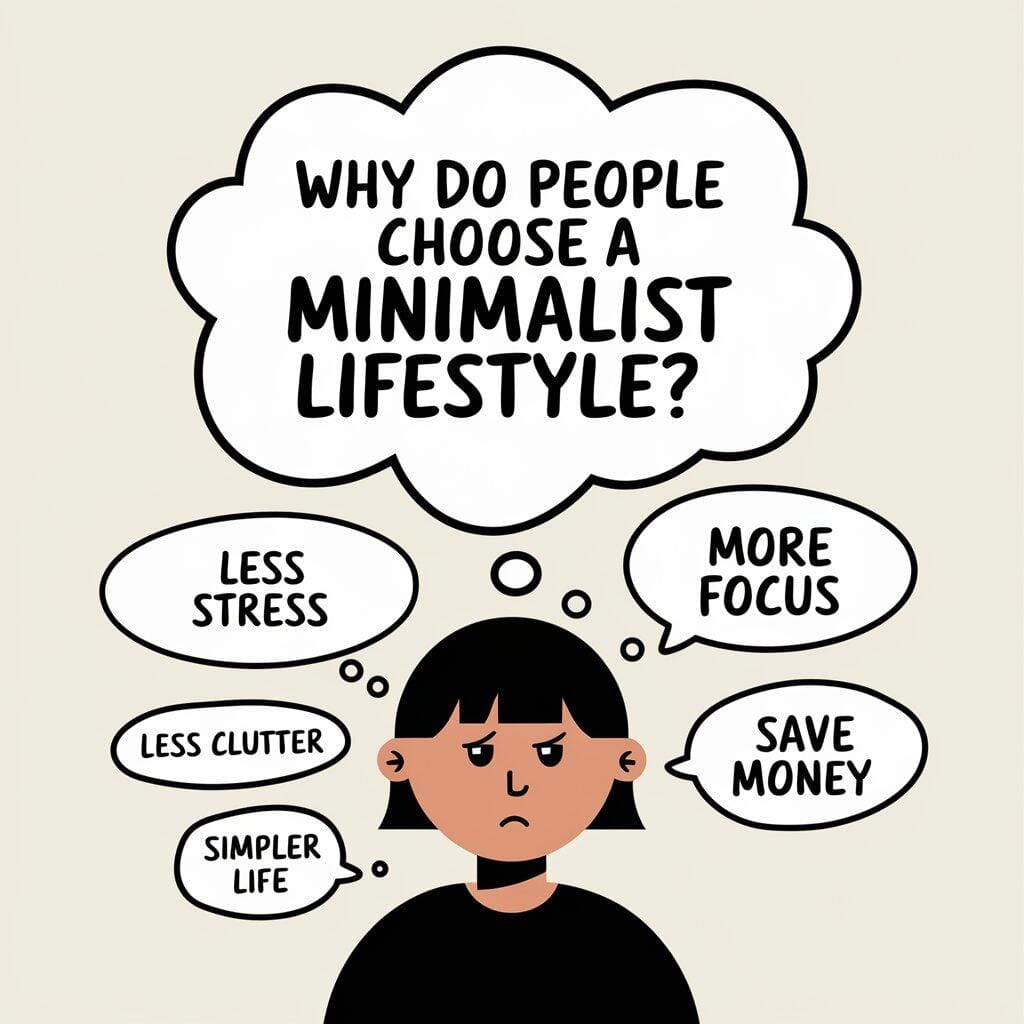In the fast-paced, consumer-driven environment of today, we sometimes find ourselves clutteredin our life and purchasing pointless objects. Constant attraction towards new things and luxury lifestyle from social media and ads drives us towards shopping without thinking and adds needless stress and financial load.
Focussing on simplicity, awareness, and the basics, a minimalist lifestyle is It’s not only about keeping things straightforward; it’s also about adopting a mindset that guides life’s decluttering and emphasises significant events. Studies on minimalism suggest it enhances mental clarity, financial stability, and emotional well-being.
In this blog we will explore the benefits of a minimalist lifestyle and see how this approach can make your life stress-free, productive, and fulfilling.
What is Minimalist Lifestyle
Focussing on simplicity, awareness, and the basics, the minimalist way of life is It’s not only about decluttering; it’s also about adopting a mindset that lets life be more meaningful and stress-free by cutting away pointless items.
Minimalism does not mean that you have to give up everything, but that you only have to make those things a part of your life that give you happiness, peace and value. This lifestyle helps in making your life better on physical, mental and financial level.
In today’s consumer-driven world where people are driven by materialistic things, a minimalist lifestyle values quality over quantity and helps you feel freedom and satisfaction.
The Minimalist Mindset – How to change your thinking

Minimalist living is more than just keeping less; it’s a way of thinking that helps one to free life from pointless objects and concentrate just on the most important things.
1. Quality Over Quantity
Minimalist thinking emphasises the need of having nice and valued objects rather than of too many objects. Whether it’s everyday routines, tools or clothing, pick just those items that improve your life.
2. Intentional Living
One does not have to take in everything without question. A minimalist’s approach is mostly based on making judgements after considering, in all spheres including relationships, time
management, and purchasing.
3. Freedom from Materialism
In today’s world we often race after new products and trends, but minimalist thinking teaches us that happiness is not in things, but in experiences and calm. When you keep away from materialistic things, tension and comparison also lessen.
4. Mental Clarity and Peace
Your mental clarity likewise improves when your physical environment is clutter-free. By avoiding pointless objects and needless distractions, a minimalist approach helps you to increase your focus and output.
5. Contentment and Thankfulness
Thankyou is another solid pillar of minimalism. Learning to be content with things helps you to lead a happy life free from needless discontent and greed.
Conclusion
A minimalist approach of living is a means to lead a more meaningful and stress-free existence, not only about doing less. This kind of thinking encourages simplicity, awareness, and happiness—qualities that are especially relevant in the fast-paced, consumer-driven environment of today.
5 Scientific Benifits of Minimalism

Not only a trend but also a scientifically supported method for enhancing mental, physical, and emotional well-being is the minimalistic way of life. Tell us fiveb scientifically validated advantages of minimalism:
1. Reduces stress and anxiety
Studies reveal that messy surroundings aggravate stress and anxiety. Your mind gets overloaded when surrounded with too much. Minimalism helps you keep your mind calm by lowering mental clutter as well as physical mess, so lowering your stress.
2. Decreases decision fatigue
Every day hundreds of decisions add to the cognitive strain our brain bears. A minimalist lifestyle streamlines decisions so that your brain isn’t wasting effort on pointless options. Studies show that few options help one make better decisions and save mental energy.
3. Productivity and focus increases
A messy environment disturbs one and influences output. Neuroscience says that a minimal and orderly surroundings enhances brain performance and increases focus and creativity.
4. Financial stability and happiness improves
Every time you buy anything new or pointless, you develop dopamine addiction, which provides temporary pleasure but raises long-term financial stress. Minimalism helps to control spending patterns, therefore supporting real happiness and financial stability.
5. Better sleep and mental health
Cluttered and over-stimulating environments impact sleep quality. According to studies, a minimum and decluttered bedroom reduces stress hormones (cortisol) and gives greater sleep and mental calm.
Conclusion
Science says that a minimalist lifestyle is not only a habit but also a strong instrument that lowers stress, decision fatigue, financial difficulties, and mental health problems if you wish to make your life more calm, stress-free, and efficient!
Why Do People Choose a Minimalist Lifestyle

In the fast-paced, materialistic environment of today, a minimalist way of life has grown to be somewhat influential. Minimalism is becoming popular not only as a fashion but also as a means of leading a more meaningful, quiet, stress-free life. Let’s investigate the reasons behind people’s choice for a simple living:
1. To reduce stress and anxiety
Too much stuff, too many responsibilities and too much clutter increases mental stress and anxiety. According to research, a decluttered and minimal environment relaxes the brain and
reduces stress hormones (cortisol). This is why people are adopting minimalism to get mental peace and clarity.
2. To achieve financial freedom
One major advantage of a simple way of living is financial consistency. Your savings and investments grow as you cut back on pointless shopping, luxury goods and superficial objects. People are choosing this way so they may build a debt-free and safe future.
3. For better focus and productivity
Minimalism removes distractions, therefore enhancing concentration and output. Whether you work or are a student, a straightforward and orderly existence increases your efficiency. People like Steve Jobs and Elon Musk also have simple lives and routines to help their concentration and decision-making strength to remain strong.
4. For real happiness and inner peace
Many people do not experience real delight even after engaging in consumeristic activities. Minimalism holds that experiences and deep connections bring satisfaction not from objects or wealth. People are thus choosing simplicity in order to reach inner peace and fulfilment.
5. To save the environment
Living a sustainable and environmentally responsible existence is yet another great advantage of simplicity. Purchasing less and cutting trash helps you also preserve the surroundings. This is the reason many individuals are opting for simplicity in line with environmentally sustainable living.
Conclusion
People are embracing minimalism to live healthier and stress-free as well as a way of life modification. Minimalism may improve and make life more meaningful in all spheres, whether your goals are financial freedom, emotional serenity, or environmentally friendly living.
Disadvantages of Minimalism

Though like every lifestyle, a minimalist one has certain drawbacks even if there are numerous advantages. While minimalism can provide difficulties in some situations it is not comfortable or practicable for everyone. Let’s consider some possible negative effects of a simple living:
1. Struggle with emotional attachment
Like family pictures, gifts and souvenirs, everyone has some precious items connected to their feelings. Adopting minimalism sometimes involves people eliminating emotionally significant objects, which can lead to regret.
2. Social pressure and expectations
Still ruling the planet are materialistic principles. People could criticise or doubt you when you decide to live simply. Sometimes family and society view minimalism as a “boring” or “cheap lifestyle,” which would make one uncomfortable.
3. Limited comfort and convenience
Minimalism is living just with the necessities. Still, occasionally it can restrict comfort and convenience. For instance, you can run across issues in an emergency if you lack backup tools or supplementary devices.
4. Overthinking Decisions
When you just focus on keeping the crucial things, you can overthink even the little things—”Should I keep this?” Is this important or not? This choice can lead to tiredness and pointless worry.
5. Initial adjustment can be difficult
Changing to minimalism can be emotionally or psychologically difficult if you have already lead a materialistic life. Not everyone finds it easy to give up old items, quit pointless buying, and modify behaviour.
Conclusion
Although minimalism is a great and useful way of living, it is not one that suits everyone. Among its usual difficulties are emotional ones, societal expectations, and limited convenience. Therefore, if you wish to embrace minimalism, you must keep a balance so that your life is both simple and pleasant.
